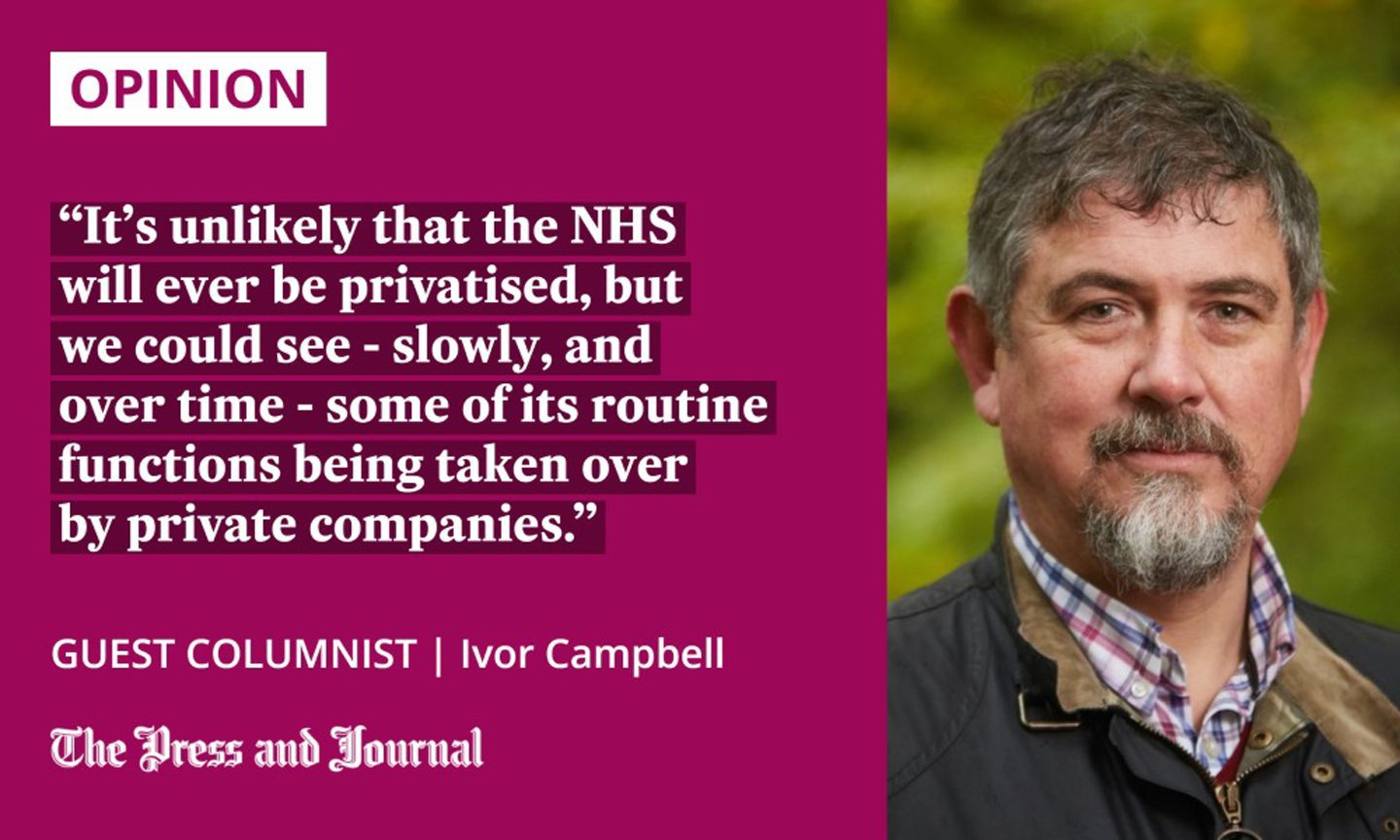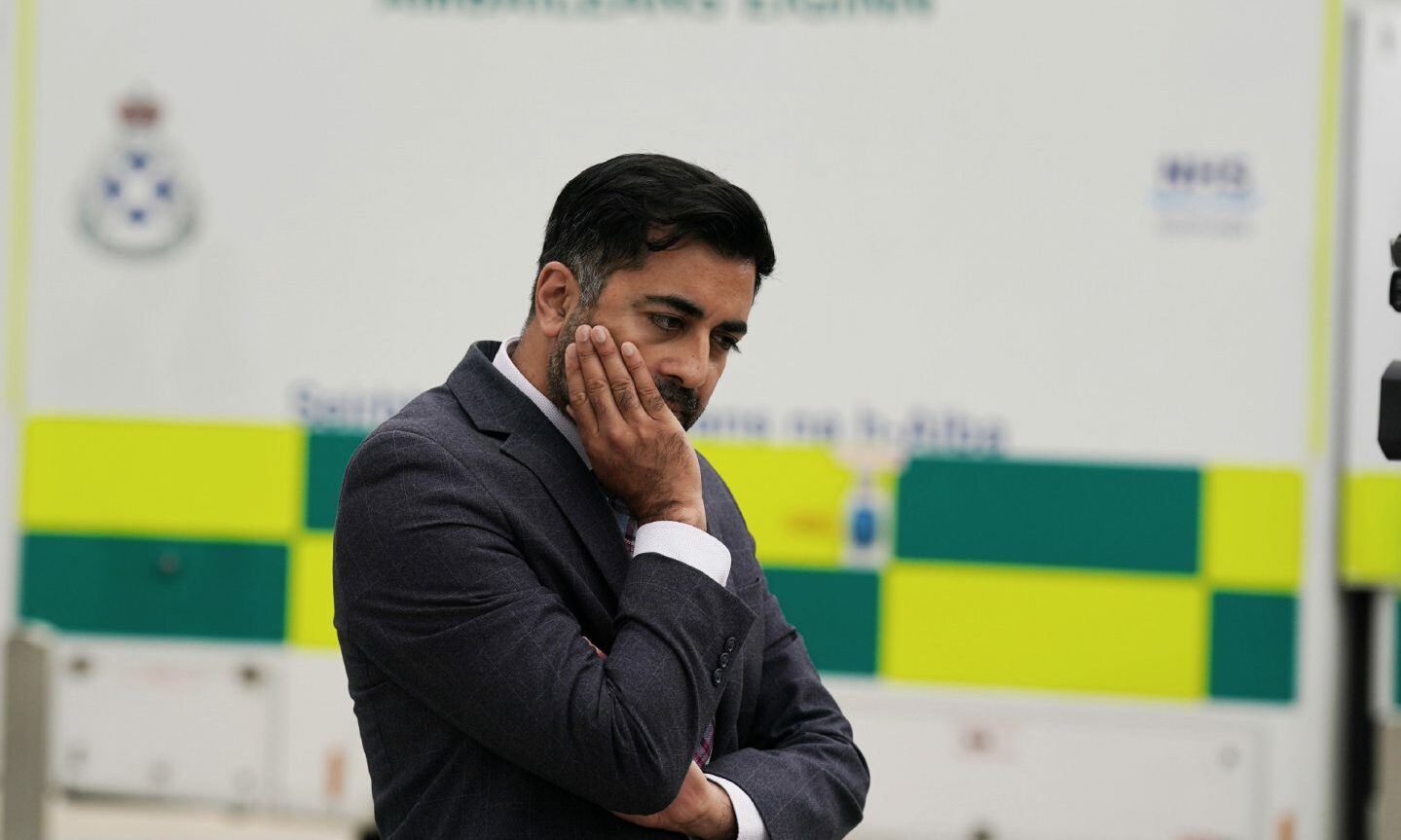NHS care, as well as being universal, was also once universally excellent. That can no longer be said to be the case, writes Ivor Campbell – so where do we go from here?
It’s often said that the National Health Service is the closest thing Britain has to a unifying religion. If that is the case, then the faith of the population is being tested like never before.
Every passing day seems to bring bleaker news for the beleaguered service, with a seemingly endless roll call of damning statistics and official reports charting yet higher levels of institutional failure.
In the past few weeks, we learned that two women from the north of Scotland waited more than three years for an appointment with a psychiatrist. When Nessie Simpson was eventually seen by a mental health practitioner, she had to travel 65 miles from her home in Fort William.
Her niece, Hayley McNamara, who also lives in Fort William, had also just got an appointment after more than three years of waiting.

Last month, staff complained that the downgrading of maternity services at Dr Gray’s Hospital in Elgin meant that almost three-quarters of births are now referred to Aberdeen or Inverness. Most pregnant women face either a 90-minute trip to Aberdeen, or a 60-minute trip to Inverness to give birth, depending on conditions.
NHS reform has never really been considered before
While both Conservative and Labour governments have previously toyed with reform, none has dared challenge the universally free, taxpayer-funded model upon which the health service was founded – until now.
Earlier this month, it was reported that NHS chief executives in Scotland had discussed abandoning its founding principles by having wealthier patients pay for treatment. They also considered the possibility of curtailing some free prescriptions.
While Humza Yousaf, Scotland’s health secretary, and First Minister Nicola Sturgeon sought to play down the reports – insisting NHS Scotland would stay publicly-owned and operated, and free at the point of delivery – the reports represent a watershed moment.
The NHS has endured because there is an almost spiritual belief in its universality. People of all classes and backgrounds accept the same level of treatment as a right and consequence of being British.
Those principals have survived because NHS care, as well as being universal, was also universally excellent. That can no longer be said to be the case. The withholding of treatment for years is worse than receiving poor treatment, and those who can afford to pay privately for a better service will inevitably opt to do so.
Healthcare is already changing
The most compelling argument against privatising the NHS has always been that the provision of healthcare should not be left to the vagaries of market forces. The irony of the current crisis is that those very market forces may now compel its demise.
No matter how strongly Britons support the NHS, few will be prepared to wait months or years to have an ingrowing toenail treated or a cyst removed, if they can have it done privately the following week for a few hundred pounds.
How the health service responds to the current crisis will determine its role in treating the next generations of patients
And, while we may be happy and willing to pay European levels of taxes in return for a European-style health service, we’re unlikely to do the same for a US-style system.
With the growing development of robotics and telemedicine, as well as an expansion of over-the-counter diagnostics, more people are now seeking remedies (for a greater range of treatments) from their local chemist, or from a private therapist or practitioner.
By spending a small amount each month, they can have more-or-less unlimited telephone or video access to a private GP.
More is being done online than was the case a few years ago. Much of it remains minor, but the direction of travel is such that, before long, more serious illnesses will be diagnosed remotely and by high street providers.
It’s unlikely that the NHS will ever be privatised, but we could see – slowly, and over time – some of its routine functions being taken over by private companies.
How the health service responds to the current crisis will determine its role in treating the next generations of patients, and whether they will hold it with the same reverence for another 70 years.
Ivor Campbell is managing director of Stirlingshire-based Snedden Campbell, a search company for the medical technology industry



Conversation